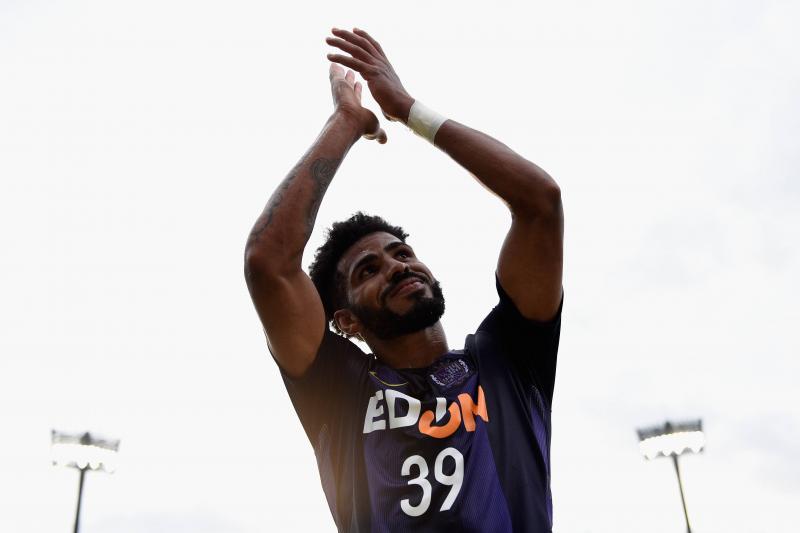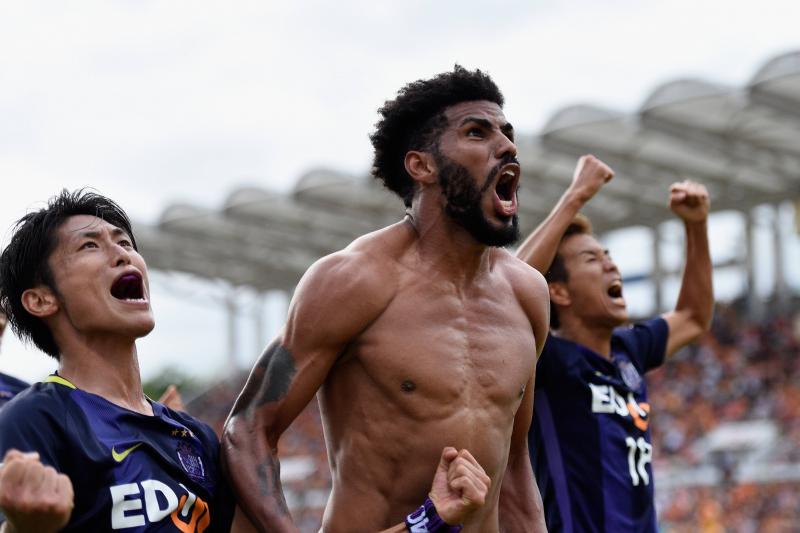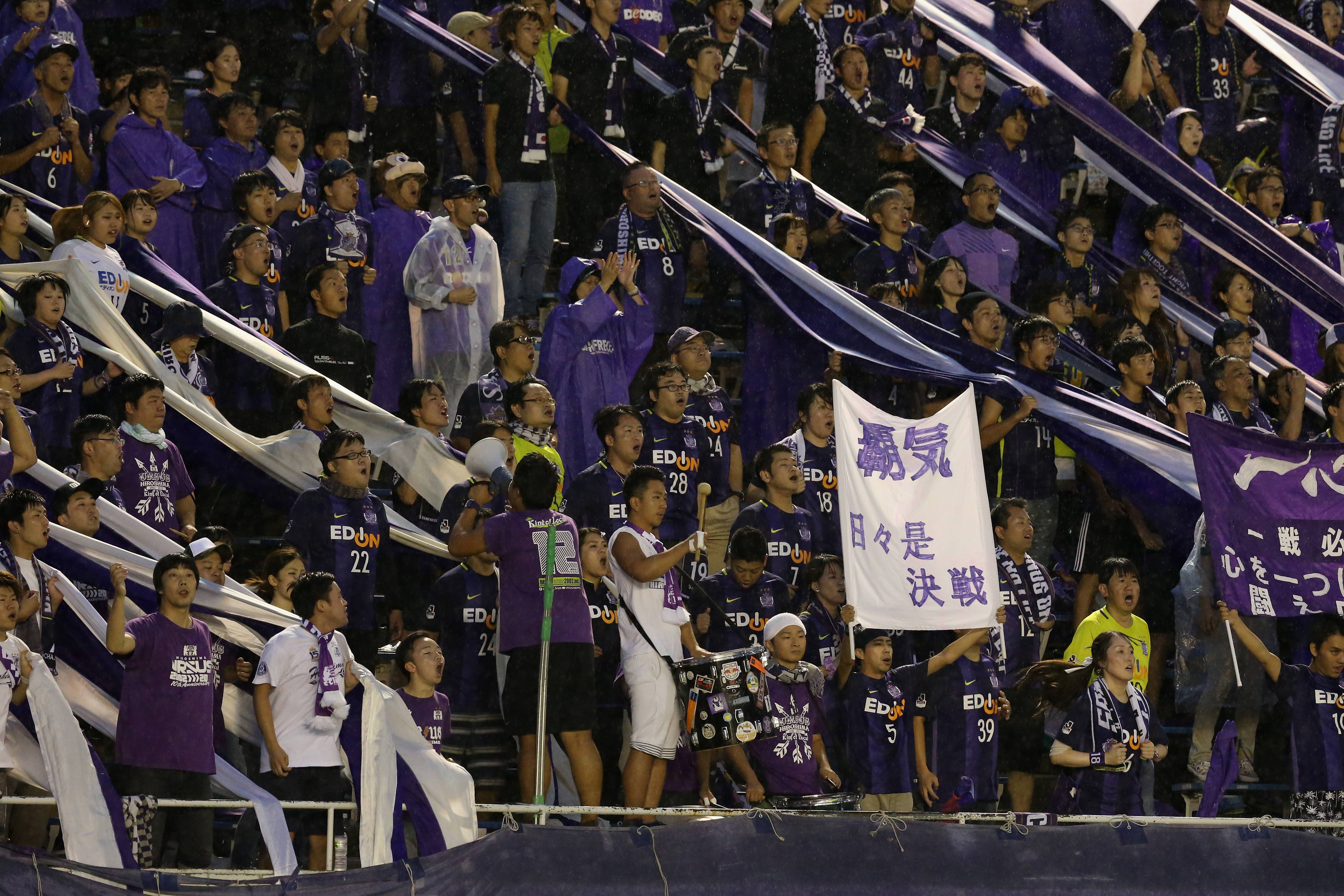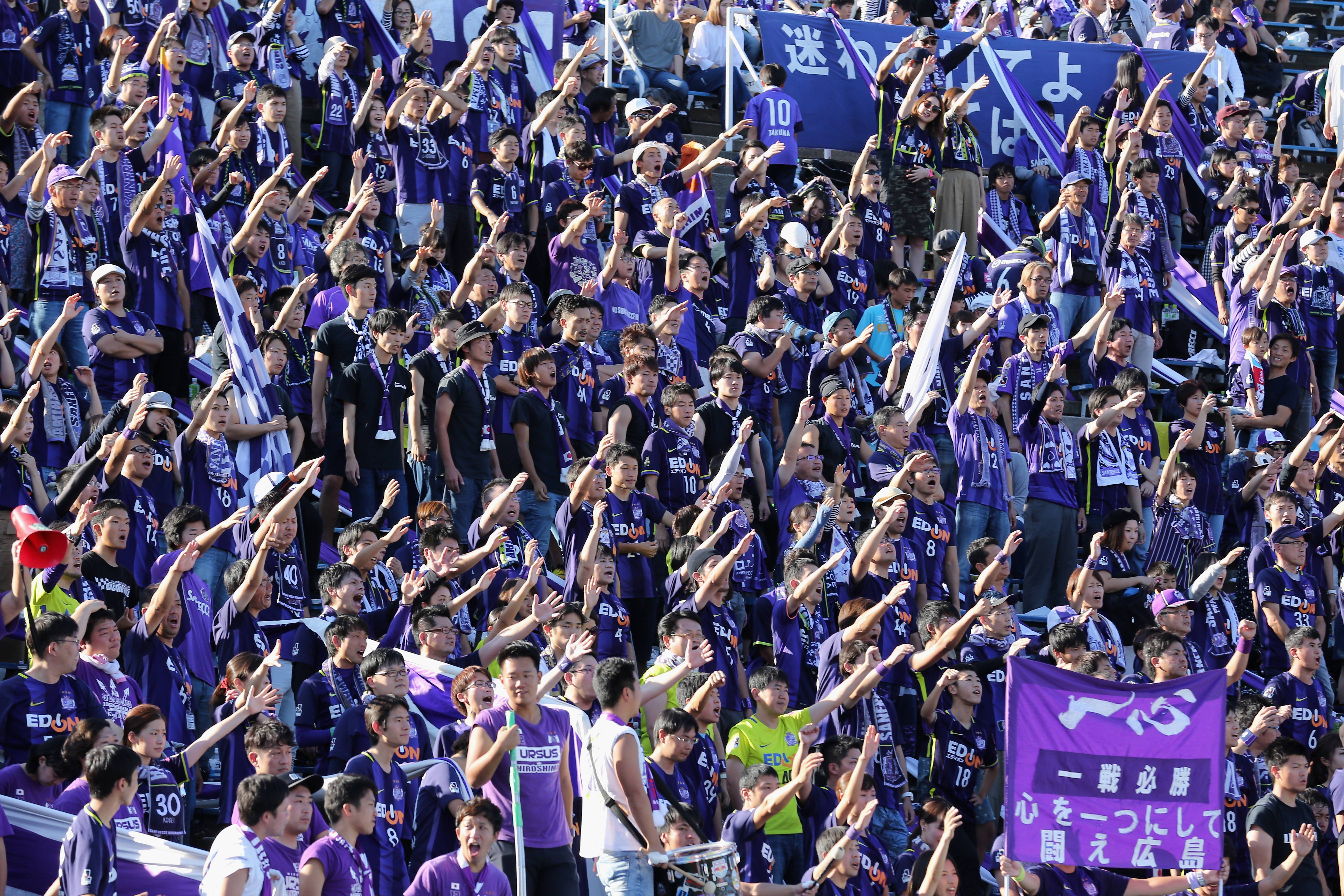
If the J.League season were to end today, Patric would be a strong contender for the MVP award. The Brazilian forward has been increasingly decisive for Sanfrecce Hiroshima and became the league’s top scorer with 10 goals after a brace against Vegalta Sendai last Saturday.
“Surely it is one of the best moments of my career, in terms of goals,” says the centre-forward, who talked to Football Tribe about his desire to wear the colours of the Samurai Blue.
An unfamiliar position for champions Sanfrecce
When Patric joined Sanfrecce Hiroshima midway through the 2017 season, the J.League co-founders were in a position they had not experienced in a decade: the relegation zone. Poor results through the first half of the season forced the resignation of manager Hajime Moriyasu, who had led the club through a golden era which included their three J1 trophies.
“In my opinion, Sanfrecce were playing the same system for too long with three centre-backs and advanced side-backs” Patric says. “The other teams studied and learnt how to beat them. The players were not used to losing. They were champions after all. But they became demotivated, they had no strength to fight back.
“[After] I came in the middle of 2017 I talked to [captain Toshihiro Aoyama] and with the most experienced players, to try to motivate them. I could not believe that such a talented team was in that situation.”
Under Swedish coach Jan Jonsson, the team turned their fortunes around in the second half of the season, ending the campaign one point above the drop zone. Patric, who spent the first half of the season rehabilitating from an ACL injury, scored four goals in 15 appearances; enough to earn a contract renewal for 2018.
Under Jofuku, a tactical and physical shift
Under Hiroshi Jofuku, Sanfrecce have been impeccable in 2018. Their 37 out of a possible 42 points make for the best start by any club in league history, and they have already surpassed their 2017 total of 33. Patric, who played for Jofuku’s Ventforet Kofu side in 2013, is quick to praise his manager’s improvement.
“His philosophy has changed completely [since 2013]. I think that he used the time he was without a club to study and hone his managerial skills, trying to improve. And he improved a lot, because he makes us do different things now,” Patric notes. “[In the past] many said he is too defensive, but not here in Hiroshima. He tells us to play offensively, always going forward, with the goal in mind. He’s changed our formation to feature four defenders.
“He is a very demanding manager. Before the first training session of 2018 … he watched every Hiroshima match from the [2017] season. At that moment I saw how he had changed.”
Sanfrecce boast the league’s best team on both sides of the ball, with just six goals conceded and 22 goals scored. Ten of those are from Patric, who sees the team’s stamina as the key to their success.
“When the matches end, almost everyone from the other team falls to the ground, while we are always standing after running more than the opponents,” says the Brazilian. “The new physical coach, Seigo-san [Seigo Ikeda], is a very knowledgeable guy who gave us a lot of physical preparation drills in the pre-season. We knew of the difficult schedule in this beginning of the season. If we were not physically prepared, we couldn’t have withstood it.”

Waiting for the JFA’s call
Patric is not shy about his ambitions to represent Japan, having professed his desire to naturalize during his time at Gamba Osaka. But his 2016 knee injury reset the process after he was unable to prevent his residency status from lapsing.
“I had to return to Brazil in October, and my visa was due to expire in January,” Patric laments. “I asked the club director to renew my visa, but it was not possible to reach an agreement. The Japanese are too strict about following rules, so they did not want to renew it for me. Sadly I lost the visa and these five years.”
Under normal circumstances, Patric could next attempt to naturalize in 2022, when he would be 34 years old. He’s hopeful, however, that the Japan Football Association might intervene on his behalf.
“I tried to look for lawyers; we’re trying to find a way. The Japanese media found it funny when I joked that my only chance to naturalize and go to the World Cup is if the JFA helps me. But my desire is still there.
“I think I would have a considerable chance of playing for Japan if I had obtained citizenship, because there are no players with my characteristics in Japan’s pool. There are many good players in all positions, but upfront there is not a tall and really strong center-forward.”
While Patric is still learning the language (“I can communicate. Not fluently, but I understand a lot of things,” he admits), he is passionate about continuing his life in Japan, where he has reemerged as one of the league’s top strikers.
“Today I feel at home, I always tell this to my friends. I am Brazilian, but my heart is Japanese,” says Patric. “I intend on staying here some years more because I love this country.
“Everything that I own today is thanks to God first of all, and also thanks to Japan. My son is studying and learning the language, he already speaks a lot. My wife also likes the country very much.
“If I could spend 11 months in Japan and one in Brazil, it would be ideal. In Brazil, we have problems with violence; we have problems with people invading your home to steal. The Japanese are a correct and welcoming people. Even if you’re a foreigner, they will always try to help you. I still want to stay here for a long time.”
Tiago Bontempo is a Brazilian journalist specializing in Japanese football for Globo. He can be found on Twitter at @GunnerTNB





